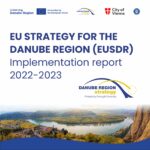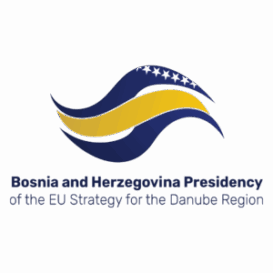Bosnia and Herzegovina has officially succeeded Austria as the Presidency of the EU Strategy for the Danube Region (EUSDR). Effective from 1 January to 31 December 2025, this leadership role underscores the nation’s commitment to fostering regional cooperation and addressing shared challenges within the Danube Region.
The EUSDR, established in June 2011, serves as a collaborative framework for countries in the Danube Region to tackle common issues such as pollution, climate change, unemployment, and connectivity deficits. Recent years have introduced additional challenges, including economic crises, migration, demographic shifts, the COVID-19 pandemic, and geopolitical tensions, notably the Russian aggression against Ukraine. These developments have significantly impacted the region, necessitating intensified cooperation and constructive dialogue.
A distinctive feature of the EUSDR is its inclusive approach, bringing together EU member states and accession countries to address mutual concerns on equal footing. In alignment with the Vienna Danube Declaration of June 2024, Bosnia and Herzegovina emphasizes that EU membership acts as a catalyst for regional stability, reconciliation, and development.
Throughout its presidency, Bosnia and Herzegovina is dedicated to accelerating the European integration process, particularly for Western Balkan countries. The nation identifies the revitalisation of the EU enlargement process as a top priority, aiming to counteract enlargement fatigue and reinforce EU credibility in the region.
Addressing the challenges of brain drain, youth unemployment, and demographic changes, Bosnia and Herzegovina will focus on policies related to youth, education, skills development, and labour markets. The presidency will also prioritise:
- Security, Civil Protection, and Disaster Preparedness: Enhancing regional cooperation in civil protection and disaster readiness.
- Tourism and Culture: Promoting the Danube Region as a premier tourist destination, fostering sustainable recovery post-pandemic through innovative and resilient strategies.
- Connectivity and Green Transition: Advancing digital and energy connectivity, optimizing renewable energy use, and promoting regional energy markets in line with the European Green Deal.
- Education, Skills, and Labor Market: Improving education and training systems to provide equal opportunities and access to quality, inclusive education and employment.
The presidency will also emphasise the implementation of the UN Sustainable Development Goals (SDGs), gender equality, and strengthening women’s role in the Danube Region. Institutional goals include deeper involvement of the European Commission’s Directorate-General for Neighbourhood and Enlargement Negotiations (DG NEAR) in EUSDR activities and exploring opportunities arising from the new Growth Plan for the Western Balkans.
A highlight of Bosnia and Herzegovina’s Presidency will be the 14th EUSDR Annual Forum, which will be held in Sarajevo from November 5 to 6, 2025. It will be preceded by the 12th Danube Participation Day on November 4. These events aim to synergise implemented activities and gather stakeholders from the Danube Region and beyond.
For a comprehensive overview and a full list of planned events, please visit the EUSDR Bosnian and Herzegovinian Presidency page.





